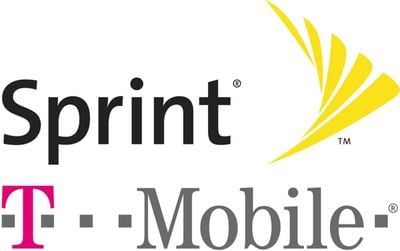United States Justice Department staff members told Sprint and T-Mobile that their planned merger is unlikely to be approved as it is currently structured, reports The Wall Street Journal.
The merger agreement between the two companies hinges on approval from the Justice Department's antitrust division, which has been exploring whether the deal would result in a major threat to competition.

In a meeting earlier this month, Justice Department staff members laid out their concerns with the all-stock deal and questioned the companies' arguments that the combination would produce important efficiencies for the merged firm, the people said.
Sprint and T-Mobile have other hurdles to overcome as well. Multiple state attorneys are prepared to launch lawsuits if the Justice Department doesn't end up challenging the merger, according to sources that spoke to The Wall Street Journal.
The FCC has also been asking the two companies for more information on topics like cost savings and wireless infrastructure plans.
A final decision "likely several weeks away" and ultimately, the staff position on the matter is a recommendation that can be overruled by the Justice Department leaders.
Discussions are ongoing and Sprint and T-Mobile may be willing to offer concessions that include assets sales to get the government to approve the merger plans.
T-Mobile and Sprint first announced plans for a merger in April 2018. If approved, the merger will combine two of the four major carriers in the United States, giving the new company nearly 100 million customers.
Update: According to T-Mobile CEO John Legere, the "premise" of the WSJ's story is untrue, though Legere declined to provide additional details.
The premise of this story, as summarized in the first paragraph, is simply untrue. Out of respect for the process, we have no further comment. This continues to be our policy since we announced our merger last year. https://t.co/3q9CVgkRfv key info: https://t.co/N5YvuuJtPZ — John Legere (@JohnLegere) April 16, 2019
























Top Rated Comments
If this deal isn't approved it's clear with Sprint's debt load they wouldn't survive as a long-term viable operation. Then we'd be left with the big 2, and a feisty, but limited resourced TMobile in 3rd. Better to have a strong 3rd consumer choice, even with the risk of an eventual elimination of redundancies, regardless of what promises are made now. Easy for me to say that last part, I know.
You need to support your statement with some real economic analysis.